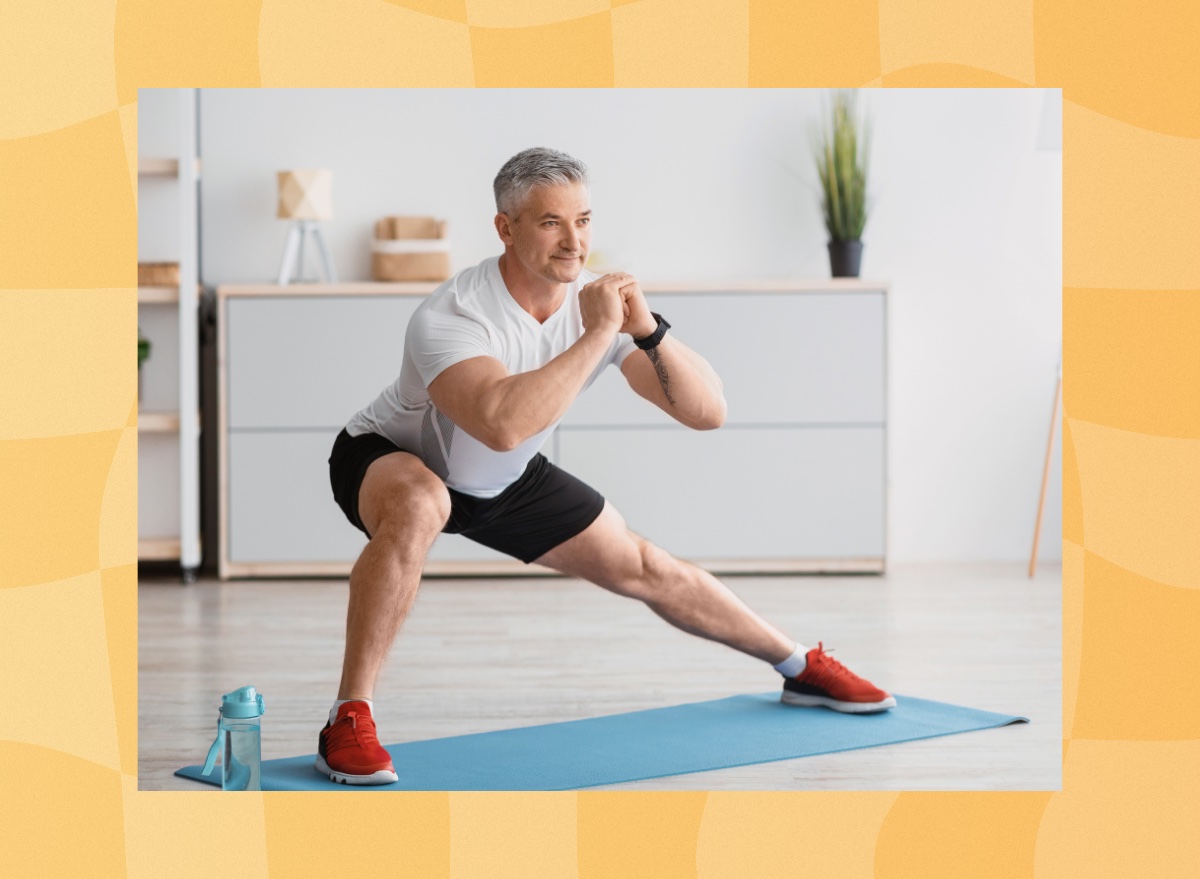7 Easy Ways To Build Serious Muscle at Home

Growing your muscles at home doesn’t require fancy workout equipment. In fact, you can achieve your desired results with just your body weight and the right fitness tips. To help you get started, we spoke with a fitness expert to learn the most effective ways to build muscle at home.
“A hybrid approach—combining bodyweight, resistance bands, and dumbbells—ensures a balance between functional strength, muscle isolation, and progression, suitable for all fitness levels,” explains Michael Baah, a celebrity trainer and BlazePod ambassador.
Keep in mind that strength training at home is as effective as you are committed. Engaging in regular, progressive, and well-rounded exercise routines will lead to noticeable results, regardless of what workout method you choose.
In This Article:
- The Most Effective Ways To Build Muscle at Home
- Bodyweight Training vs. Equipment for Building Muscle Strength at Home
The Most Effective Ways To Build Muscle at Home

- Progressive Overload: This training method involves gradually bumping up the resistance, intensity, or reps to challenge your muscles over time.
- Bodyweight Exercises: Exercises like planks, pushups, and squats boost functional strength without equipment.
- Resistance Bands: These nifty, portable tools offer extra resistance for movements like squats, lunges, presses, and rows.
- Dumbbell Training: Dumbbells are versatile and productive for building progressive strength when incorporated into exercises like shoulder presses and deadlifts.
- Compound Movements: Exercises like pushups and squats engage more than one muscle group simultaneously, improving overall strength.
- Time Under Tension (TUT): TUT requires slowing down an exercise to promote greater muscle activation and endurance.
- Circuit Training/HIIT Training: This training method blends bouts of intense exercise with brief rest periods to build cardiovascular endurance and strength.
Bodyweight Training vs. Equipment for Building Muscle Strength at Home

Bodyweight Training
- Benefits: “[Bodyweight training is] ideal for functional strength, core stability, and improving balance,” Baah tells us. “Movements like pushups, squats, and planks are adaptable for all levels.”
- Challenges: This form of training is limited in terms of resistance progression unless you incorporate additional reps, tempo changes, or advanced exercise variations.
RELATED: Strength Training But Not Losing Weight? Here’s Why
Resistance Bands
- Benefits: “[Resistance bands] provide variable resistance, engaging muscles differently through the full range of motion,” explains Baah. “Bands are joint-friendly, versatile, and great for mobility and muscle endurance.”
- Challenges: Bands have limited maximal resistance, which may not be the best choice for those seeking substantial strength gains.
Dumbbells
- Benefits: “[Dumbbells are] ideal for progressive overload and isolation,” Baah points out. “Dumbbells offer a wider range of motion and adjustable resistance, supporting both strength and hypertrophy.”
- Challenges: Dumbbells require space and additional investments in heavier weights as you progress.